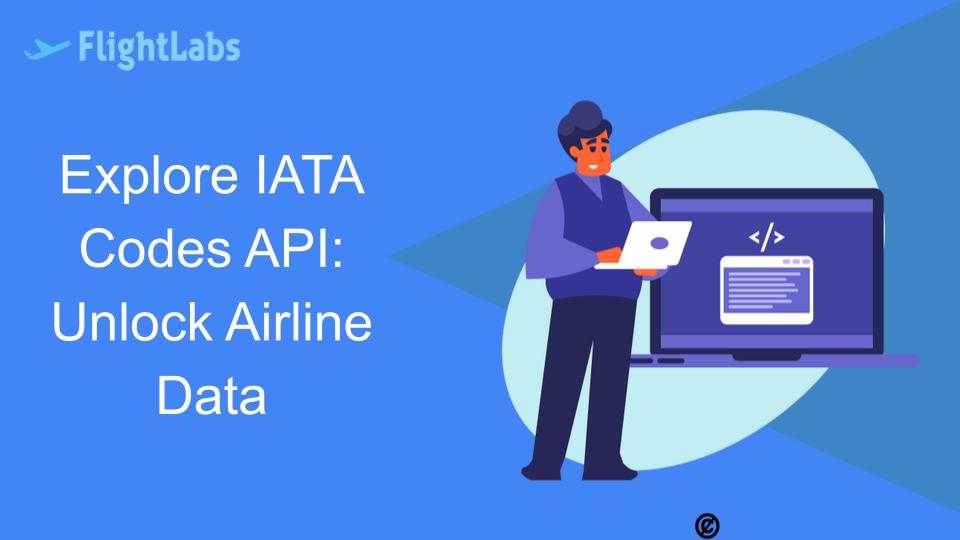Explore IATA Codes API: Unlock Airline Data

In the dynamic realm of aviation, IATA codes play a pivotal role as unique identifiers for airlines, airports, and flight routes. IATA codes, short for International Air Transport Association codes, are alphanumeric designations that simplify and streamline the vast network of global air travel. They serve as shorthand identifiers, condensing complex information into easily recognizable codes.
What Are IATA Codes?
IATA codes encompass a combination of letters and numbers assigned to airlines, airports, and locations within the aviation ecosystem. For airlines, these codes are integral components of flight numbers, appearing on boarding passes and baggage tags. Similarly, airports are distinguished by their IATA codes, facilitating efficient navigation and coordination in the air travel industry.
Why Are They Essential in Aviation?
The significance of IATA codes lies in their ability to ensure accuracy, consistency, and standardization across international air transportation. They enable seamless communication and data exchange among airlines, airports, and regulatory bodies, enhancing operational efficiency and safety. Without IATA codes, the complexities of air travel management would be magnified, leading to potential disruptions and confusion. Thus, IATA codes serve as indispensable tools in the modern aviation landscape, driving efficiency and reliability in air transport systems.

Get Started With FlightLabs And Its Benefits
Benefits of Using IATA Codes API
Unlocking the potential of FlightLabs offers a myriad of advantages in the aviation industry. Gain access to comprehensive airline data encompassing real-time flight information, enabling precise tracking of air flight status tracker API. Dive into historical data analysis for insightful trends and patterns. Experience simplified data integration with seamless incorporation into existing systems. Benefit from easy API documentation and smooth implementation processes for enhanced efficiency.
Integration Guide for Developers
Embarking on your journey with the FlightLabs begins with a straightforward API key registration process. Dive into the integration process with sample code snippets for seamless implementation. Discover best practices for API usage, including robust data security measures and effective error handling for smooth troubleshooting.
The advantages of FlightLabs are numerous. They enable airlines to make accurate and reliable decisions by providing real-time access to updated flight information. This results in higher operational efficiency and considerable cost savings. Flight Schedule Data APIs simplify operations, enhance resource allocation, and improve overall flight management, making them critical tools in the aviation sector.
Features of FlightLabs
FlightLabs boasts impressive capabilities, starting with its global coverage that spans airlines worldwide. It offers access to a comprehensive database rich in airline information, including detailed insights into airplane data API and airline routes API. Enjoy real-time updates such as live flight status and instantaneous data refresh, ensuring accuracy and timeliness in flight information management.

Use Cases of FlightLabs
The FlightLabs finds diverse applications across the aviation landscape. In airline management systems, it plays a crucial role in optimizing flight schedules and enhancing passenger experience through accurate flight information delivery. For travel applications, it streamlines booking and reservation processes, ensuring seamless travel experiences for users.
Conclusion
In conclusion, the FlightLabs offers substantial benefits in the aviation industry. It provides streamlined access to airline data and fosters the development of innovative airline solutions. Looking ahead, APIs like the IATA Codes API will continue to play an evolving role in shaping the future of the aviation industry.